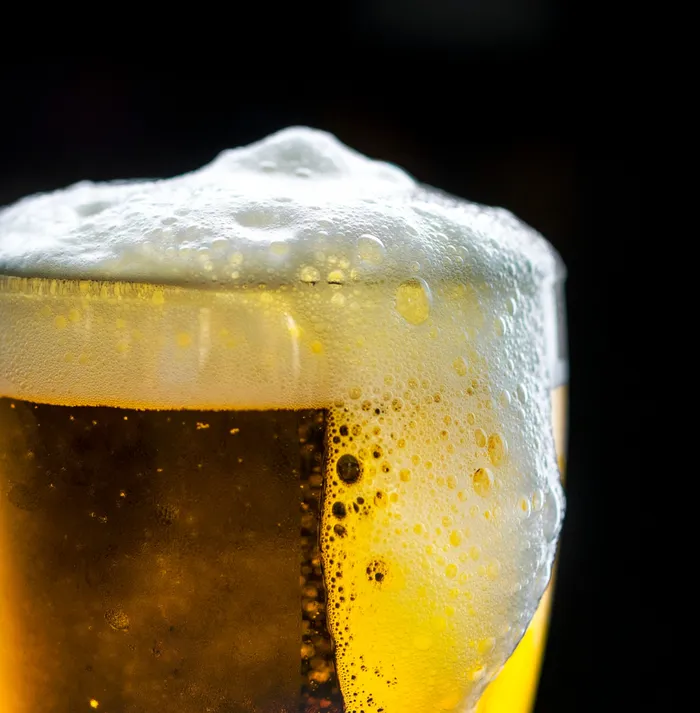Liquor industry should stop feigning concern for public health and safety
ACLOHOL REGULATION

The authors argue that minimum unit pricing (MUP) on alcohol is beneficial.
Image: Pexels
The article by the CEO of the Beer Association of South Africa, Charlene Louw, titled Minimum Pricing on Alcohol: A risky shortcut South Africa can’t afford, is a veiled admission that the business model of the liquor industry — producers and retailers — relies heavily on plying poor consumers with cheap alcohol. The consequence is an alcohol-related death rate in poorer communities that is 4½ times higher than wealthier ones.
Louw argues that minimum unit pricing (MUP) will hurt the poor. Truth is that the poor are already hurt — very badly – by the very industry now saying it has their interests at heart. Louw maintains that “the impact of MUP on small businesses, SMME brewers and township retailers could be catastrophic”. Well, only if those businesses are instruments of public harm. If they are not — if they sell alcohol at a price that does not encourage excessive consumption — then they have nothing to fear, as their current prices would already be higher than any proposed minimum price.
If they sell liquor very cheaply, they are incentivising heavy drinking which causes public harm, and any economic benefit from those sales is far outweighed by the economic costs associated with injury, traffic crashes, productivity losses and gender-based violence (GBV). These harms are acutely felt in poorer communities where clinics are overcrowded and underfunded, where schools and churches are surrounded by taverns, and recreational facilities are few and far between.
The liquor industry is using the same scare-mongering playbook that its counterparts in other countries have used to try and prevent the implementation of MUP. For this reason, it is instructive to examine what happened after its introduction. In all countries, including Scotland and Wales, Australia and Russia, the prevalence of heavy drinking declined, with positive health benefits, especially for poorer consumers. The impact on hospital casualties was immediate, with acute alcohol-related admissions declining by 2-9%.
Admissions for chronic alcohol-related conditions like liver cirrhosis took longer to show effect, but within three years showed reductions of 4-9% annually. In Russia, the prevalence of harmful use of alcohol dropped by 54% between 2003 and 2017, due to the introduction of an MUP on vodka and other regulatory measures. In Scotland, the number of deaths wholly attributable to alcohol consumption decreased by 13.4%. These are not insignificant findings. If South Africa experienced a similar impact as Scotland, it would result in 8 300 fewer alcohol-related deaths a year.
Let’s turn to the real interest of the liquor industry — its bottom line — and examine the impact of MUP on revenues and jobs. The introduction of MUP in Scotland was associated with a 3% net reduction in total alcohol sales per adult. This decrease may seem modest, but it was entirely driven by lower rates of “hazardous drinking”— exactly the behaviour MUP seeks to influence. The reduction was due to lower off-sales, with no impact on consumption in bars, hotels and tourism venues. Five years after the introduction of MUP in Scotland, a business impact assessment commissioned by Public Health Scotland found that the overall effect on retailer profits was small, with increased margins compensating for decreased volumes. There was no strong quantitative impact on the economic performance of the liquor industry — not in terms of the number of businesses, employment, turnover, value of output nor the added value of the liquor industry to other businesses.
A study of small retailers found that the concerns about MUP expressed by trade bodies prior to implementation were not borne out by their experience. After all, MUP allows retailers to keep the extra profit. In fact, some felt that the new measures enabled them to better compete with larger retailers and supermarkets. These results cast significant doubt on dire predictions of catastrophic impact on smaller businesses in South Africa. Further, local researchers Corné van Walbeek and Naomi Gibbs from the University of Cape Town have argued that an MUP of R12 per unit of pure alcohol (at 2025 prices) would be good for government revenue when taking VAT and excise taxes into consideration.If the liquor industry is serious about public health and illicit trade, there are things that it can do immediately.
First, manufacturers must stop producing cheap liquor in large containers (like 750ml and 1-litre bottles of beer) which have been shown to promote heavy drinking. Second, they must introduce their own track-and-trace system from the point of production to the point of sale, which will enable illicit liquor to be easily identified and confiscated.Third, liquor trade associations must stop pushing for extended trading hours into the early hours of the morning and over weekends, which is when incidents of murder, traffic crashes and GBV are concentrated. And the industry must stop using appeals to “partner” with government as a means to influence regulatory processes and drown out the views of communities experiencing alcohol-related harm.
In March this year, researchers published a paper detailing how industry involvement at Nedlac stalled the passing of progressive alcohol regulations.The industry is entitled to express concerns about the impact of government regulation on its business, although they would hold more water if they were backed up with sound independent research. As it stands, the peer-reviewed evidence from other countries that have implemented MUP does not support the industry’s assertions that minimum prices would lead to revenue and job losses or hurt small retailers. However, until the industry takes concrete steps to reduce the massive social and economic harm of heavy drinking, it should not feign concern for public health and safety.
David Harrison is the CEO of the DG Murray Trust (DGMT). Zimasa Mpemnyama leads DGMT’s Alcohol Harms Reduction project.
*** The views expressed here do not necessarily represent those of Independent Media or IOL
BUSINESS REPORT